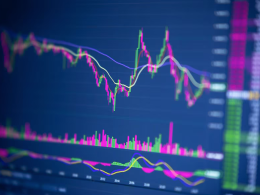by Kevin McCreadie, AGF Management Ltd.
Equity markets have picked up where they left off in 2019 by racing to new all-time highs in recent weeks, but it hasn’t been all smooth sailing for investors.
While major headwinds from U.S.- China trade tensions to Brexit have mostly blown over this last year, new unforeseen risks have continued to emerge as a test of our resolve and a reminder of how fluid and fragile stock prices can be at this late stage in the cycle.
The first of these “grey swan” events, of course, was the surprise U.S. air strike that killed Iranian General Qassem Soleimani at the beginning of the year. Although a full-blown war between the two countries never materialized, markets were decidedly on edge for several days at the height of the conflict and looked poised for a more pronounced pullback had tensions escalated further.
Now, just a few weeks later, a second swan has emerged, this time threatening a full-scale global pandemic. The coronavirus originating in China’s Wuhan province has infected 10,000 people already and caused more than 200 deaths and counting in the world’s most populous country. It has also spread to several other countries and parts of the world, including Europe, the U.S. and Canada, where four cases have been confirmed to date.
With those figures only expected to increase, many investors were quick to react to the growing contagion, trimming exposure to equities and the most vulnerable areas of the market, including Chinese stocks and the global airline industry.
This is similar to the reaction following the SARS outbreak of the early 2000s, and further volatility related to the current outbreak should be expected—especially given today’s hyped-up news cycle, which has a way of stoking fear and influencing people’s behaviour like never before.
But that’s not a reason to panic. While a widespread pandemic would likely have an adverse effect on already tepid economic growth and rekindle recession fears, global health officials remain confident that the coronavirus can be contained, in which case, the negative impact to the economy and markets may be short lived.
As such, investors need to be thoughtful about weighing the risk of a more significant downturn in coming days against the opportunity to be invested in yet another leg up. This includes making sure their mix of stocks and bonds is properly weighted for the situation at hand, but may also require an allocation to alternative asset classes and/or long-short strategies that provide even greater diversification.
If anything, investors need to be confident that their portfolio can withstand not only this current grey-swan event, but others that may be yet to surface.
Kevin McCreadie is Chief Executive Officer and Chief Investment Officer at AGF Management Ltd. He is a regular contributor to AGF Perspectives.
The commentaries contained herein are provided as a general source of information based on information available as of January 31, 2020 and should not be considered as investment advice or an offer or solicitations to buy and/or sell securities. Every effort has been made to ensure accuracy in these commentaries at the time of publication, however, accuracy cannot be guaranteed. Investors are expected to obtain professional investment advice.
The views expressed in this blog are those of the author and do not necessarily represent the opinions of AGF, its subsidiaries or any of its affiliated companies, funds or investment strategies.
AGF Investments is a group of wholly owned subsidiaries of AGF Management Limited, a Canadian reporting issuer. The subsidiaries included in AGF Investments are AGF Investments Inc. (AGFI), Highstreet Asset Management Inc. (Highstreet), AGF Investments LLC (formerly FFCM, LLC), AGF Investments America Inc. (AGFA), AGF Asset Management (Asia) Limited (AGF AM Asia) and AGF International Advisors Company Limited (AGFIA). AGFA is a registered advisor in the U.S. AGFI and Highstreet are registered as portfolio managers across Canadian securities commissions. AGFIA is regulated by the Central Bank of Ireland and registered with the Australian Securities & Investments Commission. AGF AM Asia is registered as a portfolio manager in Singapore. The subsidiaries that form AGF Investments manage a variety of mandates comprised of equity, fixed income and balanced assets.
™ The ‘AGF’ logo is a trademark of AGF Management Limited and used under licence.
About AGF Management Limited
Founded in 1957, AGF Management Limited (AGF) is an independent and globally diverse asset management firm. AGF brings a disciplined approach to delivering excellence in investment management through its fundamental, quantitative, alternative and high-net-worth businesses focused on providing an exceptional client experience. AGF’s suite of investment solutions extends globally to a wide range of clients, from financial advisors and individual investors to institutional investors including pension plans, corporate plans, sovereign wealth funds and endowments and foundations.
For further information, please visit AGF.com.
© 2020 AGF Management Limited. All rights reserved.
This post was first published at the AGF Perspectives Blog.















